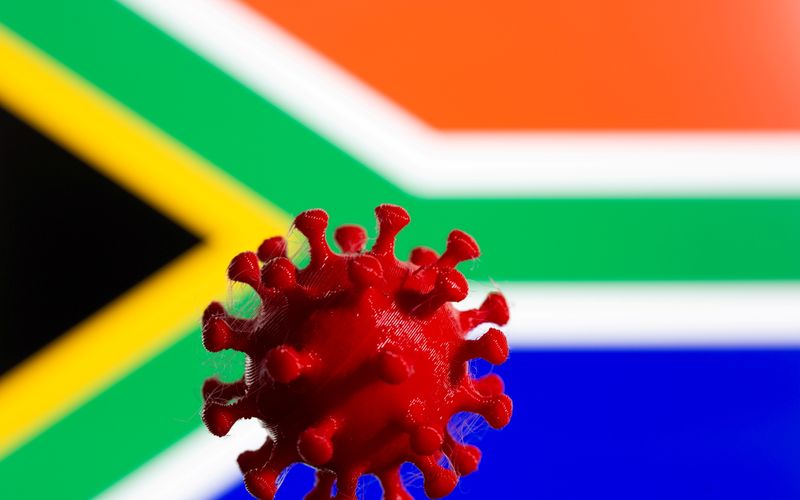JOHANNESBURG (Reuters) -South African scientists have detected a new COVID-19 variant in small numbers and are working to understand its potential implications, they said on Thursday.
The variant - called B.1.1.529 - has a "very unusual constellation" of mutations, which are concerning because they could help it evade the body's immune response and make it more transmissible, scientists told reporters at a news conference.
Early signs from diagnostic laboratories suggest the variant has rapidly increased in the most populated province of Gauteng and may already be present in the country's other eight provinces, they said.
In a regular daily update on confirmed cases countrywide, the National Institute for Communicable Diseases (NICD) later reported 2,465 new COVID-19 infections, slightly less than double the previous day's infections. The NICD did not attribute the latest resurgence to the new variant, although some leading local scientists suspect it is the cause.
South Africa has confirmed around 100 specimens as B.1.1.529, but the variant has also been found in Botswana and Hong Kong, with the Hong Kong case a traveller from South Africa. As many as 90% of new cases in Gauteng could be B.1.1.529, scientists believe.
"Although the data are limited, our experts are working overtime with all the established surveillance systems to understand the new variant and what the potential implications could be," the NICD said in a statement.
South Africa has requested an urgent sitting of a World Health Organization (WHO) working group on virus evolution on Friday to discuss the new variant.
Health Minister Joe Phaahla said it was too early to say whether the government would impose tougher restrictions in response to the variant.
South Africa was the first country to detect the Beta variant last year.

Beta is one of only four labelled "of concern" by the WHO because there is evidence that it is more contagious and vaccines work less well against it.
The country detected another variant, C.1.2, earlier this year, but that has not displaced the more common Delta variant and still accounts for only a small percentage of genomes sequenced in recent months.
